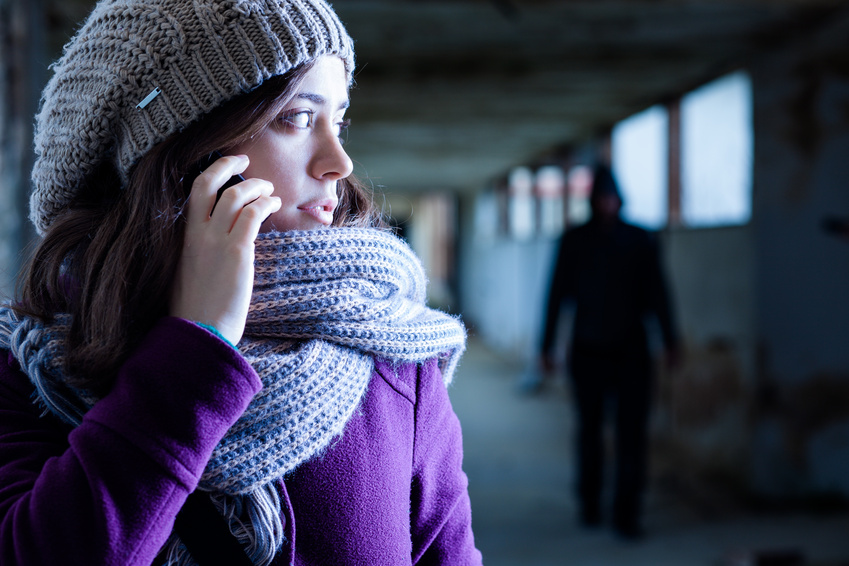What should I do if I witness a crime?

Quicktips
-
Help without putting myself at risk
-
Demand help from others
-
Observe carefully and memorise characteristics of the perpetrator
-
Call the emergency number 110
-
Take care of the victim(s)
-
Be prepared to be a witness
To the best of his/her abilities everyone can help prevent or stop crime. Sometimes just speaking loudly or making a gesture is enough to put a criminal off. However, it is important to be careful – no-one expects you to put your own health at risk.
Looking away or even running away is not the solution: Look for supporters and contact the police immediately. Keep a safe distance from the perpetrator and speak directly to the victim :“ Come here to us, we´ll help you“. Be active and make it clear that violence is not a private matter. It often happens in the middle of the day with plenty of lookers-on, in the pedestrian zone, in the mall or on a bus.People are robbed, threatened or even mugged while most of those who have seen it look on or turn away. Yet these lookers-on could have prevented things from escalating if they had acted together. Don`t wait for“ somebody to do something“ - take action and make others aware of what is going on. If you speak to someone directly he is less likely to turn away - „ You - the man in the polo shirt- help me“. A loud and clear appeal to a passerby „ You – the lady in the hat – call the police“ is much more effective than simply saying „someone call the police“. Ask a bus driver for help. A strong community is effective in creating a civilised and friendly community.
Every detail is important: How tall was the perpetrator? What colour was his hair? How was he dressed? What was the number of the getaway car? Crimes often happen in a matter of seconds – the criminal is gone before it is possible to do anything to stop him.But your help is still very important; you observed the crime, you know which way he fled the scene, you memorised characteristics. Often it is the little, apparently unimportant details which at the end of rhe day solve a crimeand bring a criminal to justice: Your careful observations will help the investigationalong. Therefore tell the police everything you saw – as detailled as possible.
The police are out and about, but they can`t be everywhere at the same time. When a crime has been committed every second counts.:
The faster the police are called the better the chances of catching the criminal – and modern forms of communication make it so easy to contact the police:
Mobile phones aren`t only for gossiping – they can help to solve crime. If you haven`t got a mobile with you, simply ask a passer-by to call 110. A call to the emergency services is toll-free – whether you use a mobile or a public call-box – you need neither coins nor cards! It costs nothing to call the police. When you call give as much information as succintly as possible. (Who? What? Where? When?) and remember- even suppositions can often help the investigations along.
First aid is very important – help the victim – your help could be a life-saver. Even if you are not trained to give first aid, turning the victim onto his side and clearing the airways can be extremely important. It doesn`t matter if your clothes get messed up – in an emergency the victim is the only thing that counts. Call the emergency services and -HELP_ everyone can do somthing!
A lot of criminals get away with their crimes simply because witnesses don`t contact the police – whether from fear, fear of getting involved or lack of time. But this only encourages criminals to commit other crimes. In order to put a stop to crime the police need your help. It is very difficult to solve a crime without your detailled description of crime and criminal.


